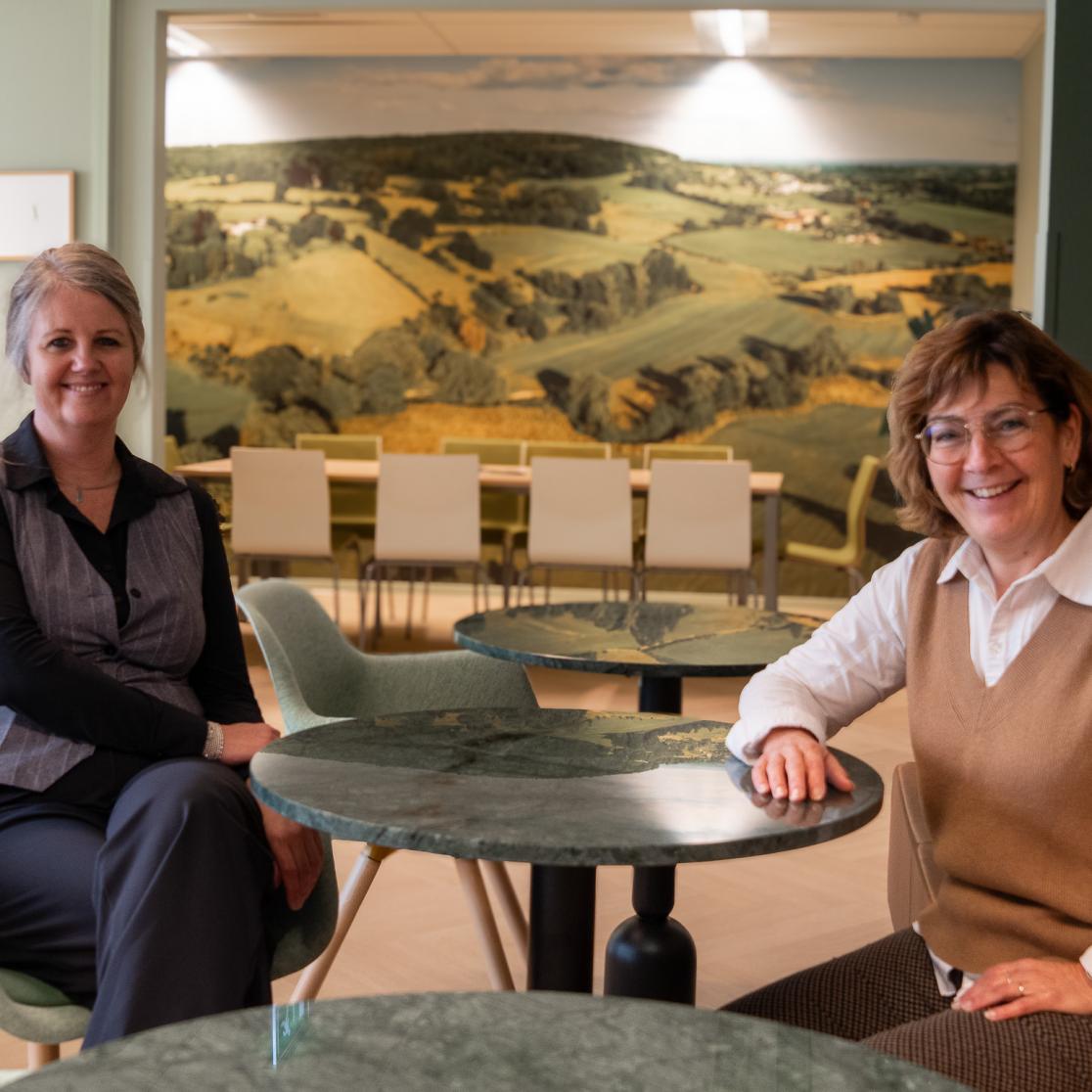Maastricht University and Arbo Unie join forces in improving occupational health
A new academic partnership between Maastricht University (UM) and Arbo Unie (AU) strengthens the efforts that are made towards healthy workplaces and lifestyles for workers.
Annemie Schols, Dean of the Faculty of Health, Medicine and Life Sciences and Willem van Rhenen, Chief Health Officer at Arbo Unie, a Dutch occupational health service, shook hands last September and ratified a five-year agreement between the two organisations. The agreement, named ‘the Academic Collaboration in Lifestyle and Sustainable Employability’ allows occupational health specialists from Arbo Unie to conduct research together with Maastricht University’s Department of Social Medicine (FHML).
The collaboration originated from Arbo Unie's efforts to establish an “academic setting (Dutch: academische werkplaats)” about lifestyle in collaboration with a university.
Petra Beurskens, an occupational hygienist at Arbo Unie, conducts the first PhD project under the flag of this agreement. This project builds on an astute observation of Petra on lifestyle and Body Mass Index among shift workers.
From an observation
Petra works as an Arbo Unie consultant at Chemelot Industrial Park and noticed the health-related issues shift workers deal with. Petra: “Shift workers, especially those working at night, are at greater risk of obesity, chronic illnesses and physical complaints. I became concerned for their health and suggested to the Knowledge Institute Work and Health at Arbo Unie I’d do a doctorate on the topic together with Maastricht University, as it is my alma mater.” Petra combines theory and practice in her PhD, she will be supervised at UM by Prof. Dr. Angelique de Rijk en Dr. Inge Houkes, two specialists in occupational health and sustainable work and also by two supervisors at Arbo Unie (Willem van Rhenen and Giny Norder, an occupational physician).
Inge: “Arbo Unie has access to a lot of data and practical knowledge. We can use our academic expertise to support Petra in setting up the correct study design and to translate the evidence-based findings into practice at Chemelot and other companies.”
Comes a doctorate
Petra’s project is called: ‘Effect and process evaluation of a tailored and individual lifestyle intervention to reduce BMI among shift workers’. “Improving the lifestyle of an individual also happens outside of the clinical environment, such as the workplace” Petra says. “We know that nighttime labour can cause cardiovascular diseases. A healthy lifestyle can help reduce those risks. For example, circadian misalignment can cause a spike in insulin and increase the risk of diabetes. The (moral) obligation of the employer lies in making sure nighttime workers can work in a healthy manner and know how to counter those risks.
70% of Dutch night workers have a BMI higher than 25, well above the average of non-shift workers, which is 55%. Shift workers, especially blue color workers as Petra experienced, also work in difficult conditions. This makes it more even challenging to improve their health and employability. An approach addressing both the individual worker and the work environment is warranted.
In the upcoming years, Petra will work on effective lifestyle interventions. According to Inge, effective is a keyword. “What works in a controlled environment can misfire in practice. Petra’s research is a great example of practice-based interventions.”
And a healthier workplace for all
We spend a large part of our life at the workplace. It goes without saying that prevention and occupational health can greatly benefit our population. MUMC+ already incorporates this vision in their strategic plan ‘Gezond Leven’ (Healthy Living).
The awareness is starting to spread among Medicine students as well. Inge: “We offer a minor in lifestyle medicine. This will hopefully translate into holistic care where physicians also look at the physical and mental impact work has on an individual.”
The role of an employer in this story is an important one, according to Petra. “Besides health determinants such as a sleep rhythm or food, there are many aspects that affect a worker’s health. Financial status, work stress, exhaustion and more play an important part in someone’s health and lifestyle and can be positively impacted by employers.”

Hulsegge, G., Van Mechelen, W., Paagman, H., Proper, K. I., & Anema, J. R. (2020). The moderating role of lifestyle, age, and years working in shifts in the relationship between shift work and being overweight. International Archives of Occupational and Environmental Health, 93(6), 697–705. https://doi.org/10.1007/s00420-020-01519-4
Text: Ruben Beeckman
Also read
-
More than a student job: five alumni about their unique role in groundbreaking vascular research
What is it like to take part in cutting-edge vascular research as a student, standing in the operating room, directly responsible for handling patient material? Five alumni of the Maastricht MAPEX student team share what they learned, the challenges they faced, and how this experience shaped their...

-
Sophie Jooren - Compliance to local tobacco policies
Whether a specific intervention to create a smoke-free outdoor environment is effective or not has been widely studied. However, to improve compliance, policymakers need to understand how smokers react to those interventions and the factors influencing their compliance.

-
Sweeteners help maintain weight loss after dieting
Overweight people who want to lose weight successfully are better off supplementing their healthy diet with sweeteners than with foods containing sugar products. An international study, in which Maastricht University (UM) participated, shows that people who supplement their diet with sweeteners are...
